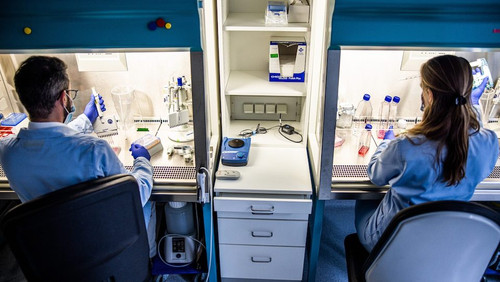
Valneva announces Health Canada approval of the world’s first chikungunya vaccine, IXCHIQ®.
Valneva SE (Nasdaq: VALN; Euronext Paris: VLA) announced today that Health Canada has approved IXCHIQ®, Valneva’s single-dose vaccine for the prevention of disease caused by Chikungunya virus in persons 18 years of age and older. This is the second approval the company has received for IXCHIQ®, following the US Food and Drug Administration (FDA) approval in November 2023. The European Medicines Agency (EMA) also recently recommended approval of the vaccine in Europe, with a formal decision expected in the third quarter of 2024.
IXCHIQ® is the only licensed chikungunya vaccine in the world to address this unmet medical need. Each year, more than 50 million North Americans, including approximately 7 million Canadians, travel to countries where chikungunya is endemic. Valneva began commercialising the vaccine in the US this year and plans to sell the first doses in Canada in the fourth quarter of 2024.
Juan Carlos Jaramillo, M.D., Chief Medical Officer of Valneva, commented: “This second approval marks another important milestone in the global introduction of a preventative solution against Chikungunya. In recent years, climate change has caused the Aedes mosquito, a known vector for chikungunya and dengue viruses, to spread to previously unaffected areas. The more widely we can make this vaccine available, the better we will be able to reduce the burden of this debilitating disease, and we would like to thank our partner CEPI for supporting us in this endeavour.
In addition to the US, Canada and Europe, Valneva has partnered with the Coalition for Epidemic Preparedness Innovations (CEPI) and Instituto Butantan in Brazil to make the vaccine more accessible to low- and middle-income countries (LMIC). The collaboration falls within the framework of an agreement signed in July 2019 between CEPI and Valneva, which provides funding of up to $24.6 million with support from the European Union.
- SEO Powered Content & PR Distribution. Get Amplified Today.
- PlatoData.Network Vertical Generative Ai. Empower Yourself. Access Here.
- PlatoAiStream. Web3 Intelligence. Knowledge Amplified. Access Here.
- PlatoESG. Carbon, CleanTech, Energy, Environment, Solar, Waste Management. Access Here.
- PlatoHealth. Biotech and Clinical Trials Intelligence. Access Here.
- Source: https://european-biotechnology.com/up-to-date/latest-news/news/valneva-gets-approval-for-chikungunya-vaccine-in-canada.html
